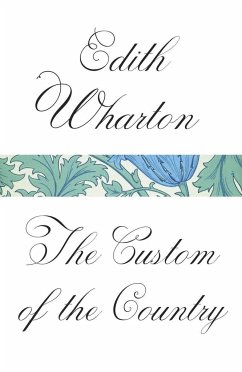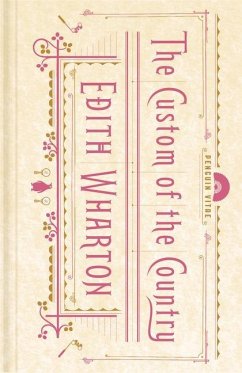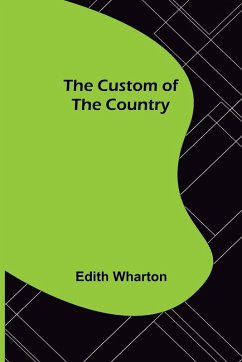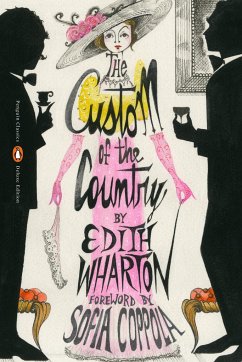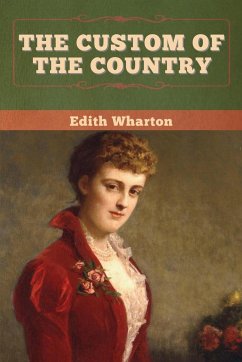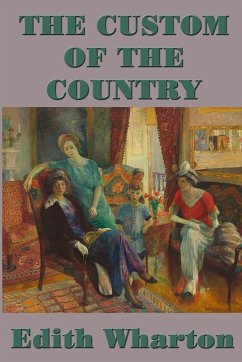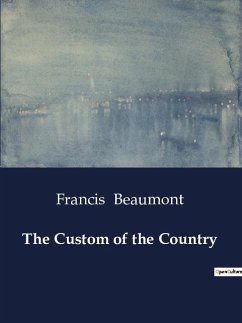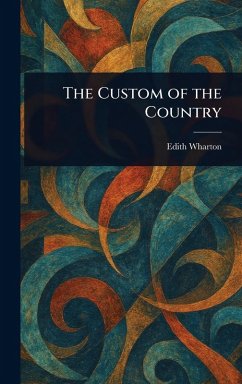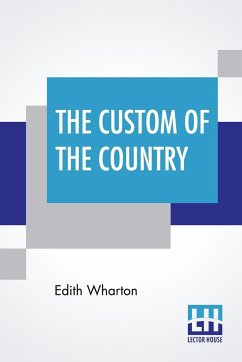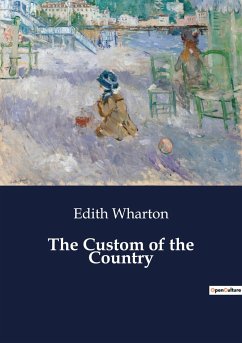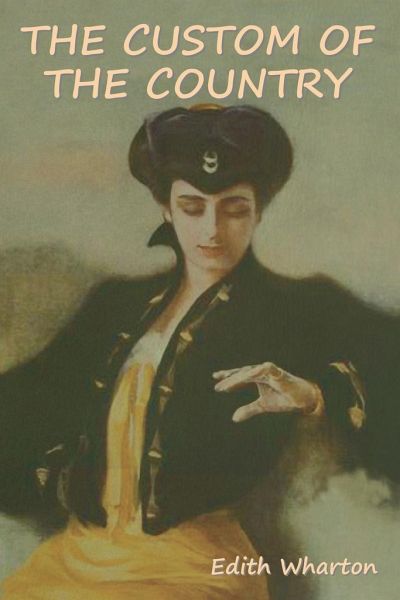
The Custom of the Country
Versandkostenfrei!
Versandfertig in 1-2 Wochen
20,99 €
inkl. MwSt.

PAYBACK Punkte
10 °P sammeln!
The Custom of the Country is a 1913 tragicomedy of manners novel by the American author Edith Wharton. It tells the story of Undine Spragg, a Midwestern girl who attempts to ascend in New York City society. The title phrase is discussed in the novel. Charles Bowen asserts to Laura Fairford that it is "abnormal" that Ralph Marvell does not share his business life with his wife Undine. He does not "let her share in the real business of life" nor "rely on her judgment and help in the conduct of serious affairs". He believes that this behavior is typical of American men who, unlike Europeans, spen...
The Custom of the Country is a 1913 tragicomedy of manners novel by the American author Edith Wharton. It tells the story of Undine Spragg, a Midwestern girl who attempts to ascend in New York City society. The title phrase is discussed in the novel. Charles Bowen asserts to Laura Fairford that it is "abnormal" that Ralph Marvell does not share his business life with his wife Undine. He does not "let her share in the real business of life" nor "rely on her judgment and help in the conduct of serious affairs". He believes that this behavior is typical of American men who, unlike Europeans, spend money on their wives but undervalue them as individuals, while living passionately in their business lives. To do otherwise, says Bowen, would be "against the custom of the country". (Chapter XV) Edith Wharton said the title of the novel came from a play by English playwrights John Fletcher and Philip Massinger, entitled The Custom of the Country, in which the term referred to the droit du seigneur, the claim of a ruler to have sex with a subordinate female before her husband. Julian Fellowes has cited The Custom of the Country as an inspiration for his creative work, including Downton Abbey. Upon receiving the Edith Wharton Lifetime Achievement Award in 2012 in Boston, Massachusetts, Fellowes said: "It is quite true that I felt this was my book; that the novel was talking to me in a most extreme and immediate way. I think it's a remarkable piece of writing. In Undine Spragg, Wharton has created an anti-heroine absolutely in the same rank as Becky Sharp, Scarlett O'Hara, or Lizzie Eustace. Undine has no values except ambition, greed and desire, and yet through the miracle of Wharton's writing, you are on her side. That's what's so extraordinary about the book...I decided, largely because of her work, that it was time I wrote something." In 2020 American filmmaker Sofia Coppola announced she planned to develop a miniseries adaptation of the work. (wikipedia.org)





